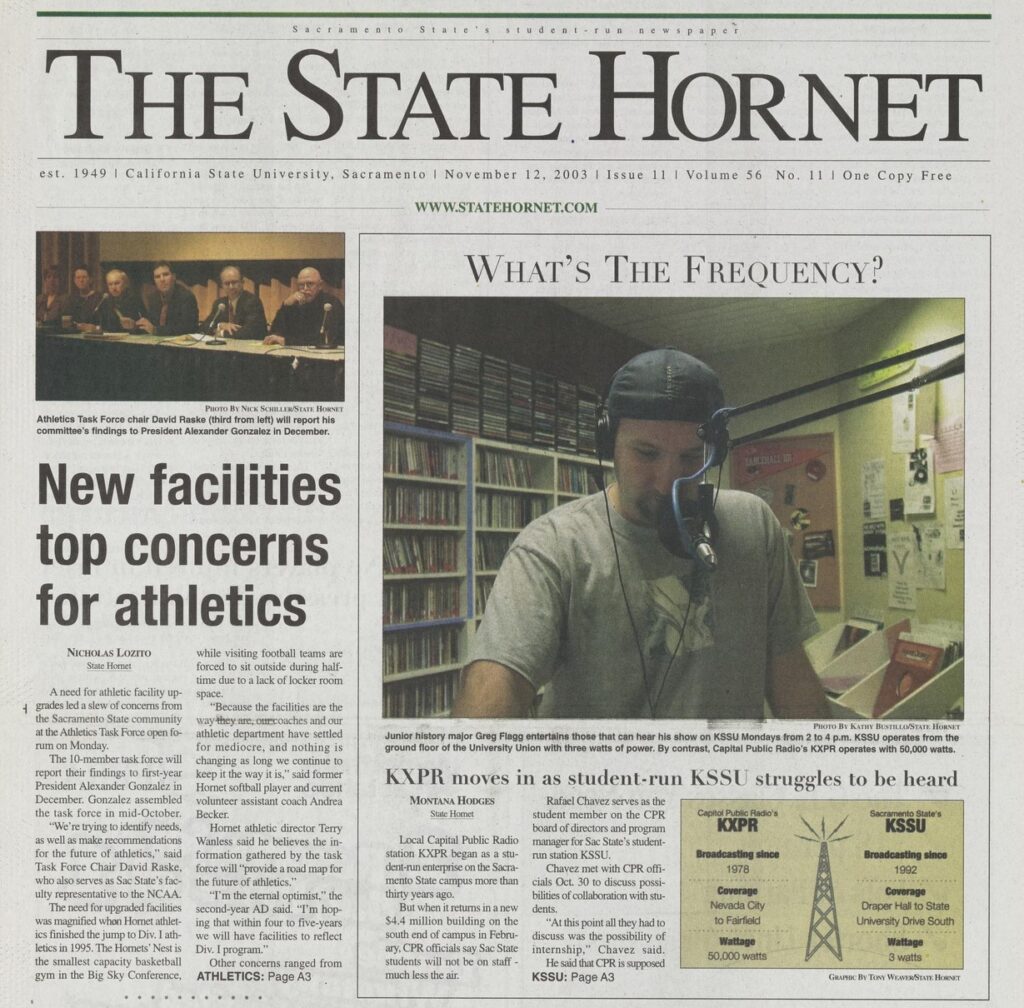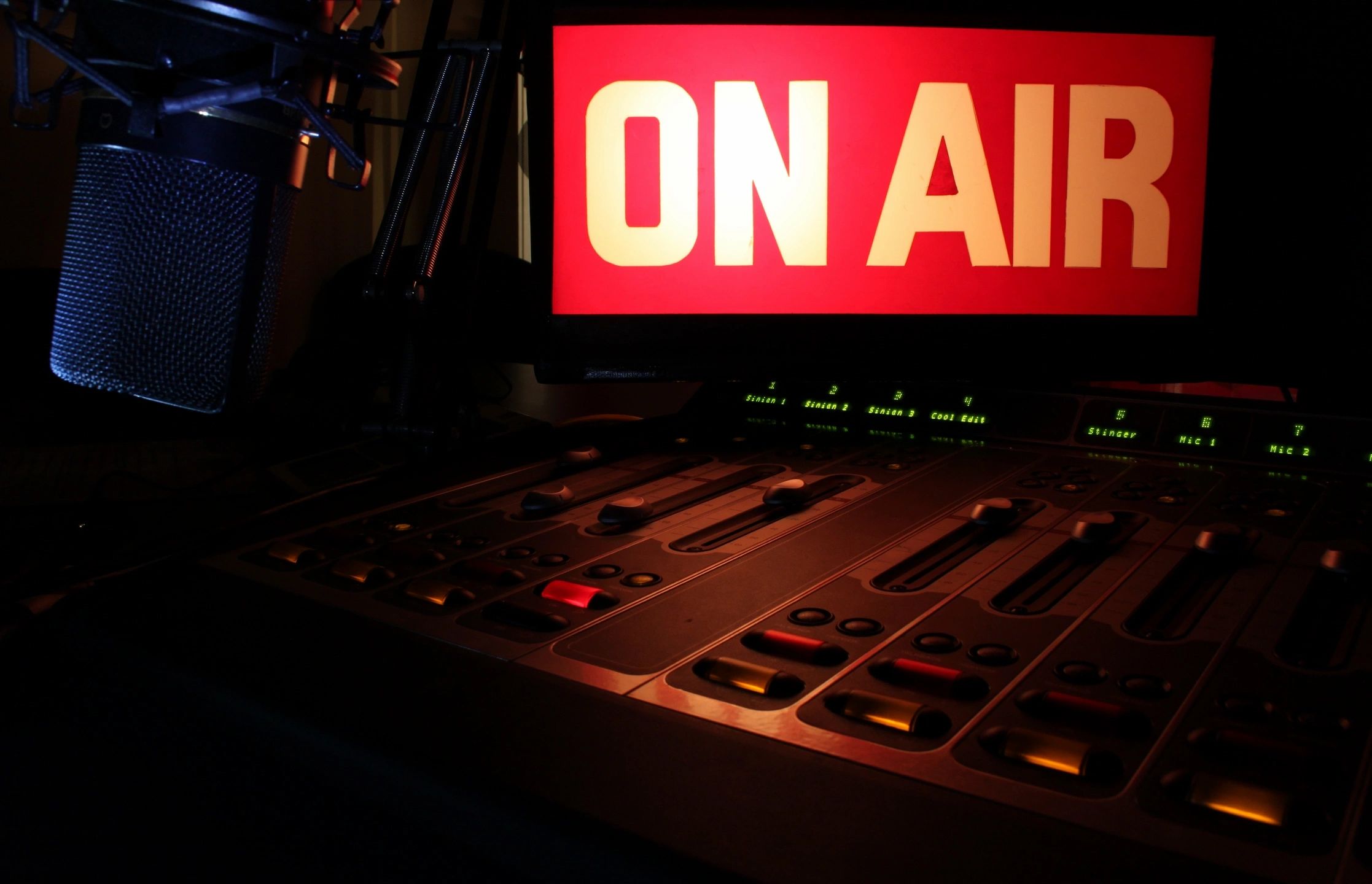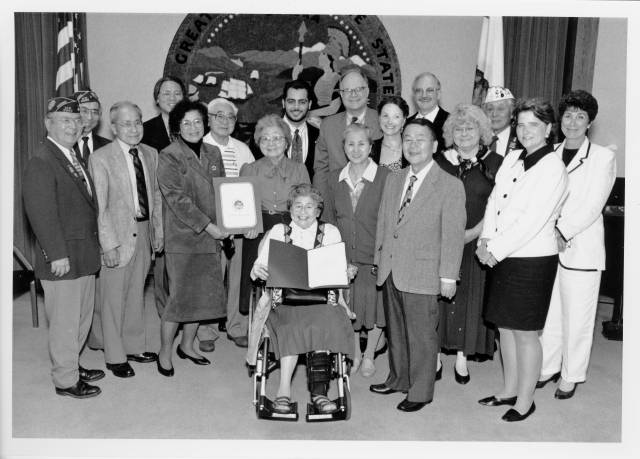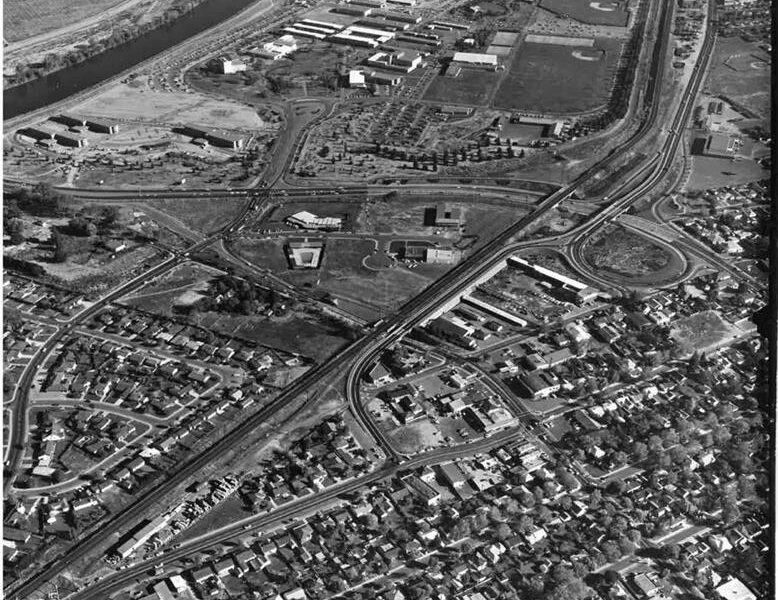KERS student radio was established in 1964 as an exercise for students in the Speech Department. During this time, the radio was completely student-run with the help of faculty advisors. Because it was run primarily by students, they had complete control of what kind of programming they wanted to broadcast. The programming also changed as the student leadership changed throughout the years, for example for much of the late 1960s and early 1970s, the radio broadcasted programs about the Black Power Movement and the Vietnam War. In the beginning, KERS broadcasted using a small transmitter of 10 watts allowing them to broadcast only to the Sacramento State community. In transmitting only to Sacramento State, KERS promoted student events, speaking engagements on campus, and the talent of university students. In 1967, the radio was able to obtain a used transmitter from the KCRA television station that transmitted 5000 watts. This allowed KERS to broadcast to the greater Sacramento community outside of the university.
Throughout its time on air, many KERS reporters were responsible for speaking out against injustices and breaking notable stories. Rosemary King reported one notable story in 1971. While on air, King disclosed Governor Ronald Reagan’s state income tax status from 1970. It had been alleged that Governor Reagan had not paid his state income tax that year, In her broadcast, she stated “the main topic of conversation in Capitol corridors is the charge that Governor Ronald Reagan paid no state income taxes… if true, this conflicts somewhat with the governor’s stated philosophy that taxes should hurt.” Days later, Ms. King was met by an investigator from the Special Investigations Division of the California Franchise Tax Board that wanted to know how she could have obtained such information.

In 1970, radio director Dennis Young used his broadcast to speak out against a claim that KERS was misusing free speech when broadcasting a program that covered a story on the 1970 sheriff election and drug problems within the community. In the broadcast, Young stated that a drug bust that occurred days before the broadcast was coordinated by the incumbent Sheriff and the local media to bring an issue to the attention of the community before the upcoming election season. Young argued that Sheriff John Misterly, the incumbent, was creating more problems than fixing them with his oppressive intervention, which had resulted in many being arrested on a failure to disperse charges and two others being charged with drug possession. Offended, Misterly responded by stating “We are going to destroy the conspiracy between KZAP and KERS.” For Young, the radio had an obligation to present both sides of the story, the news report of the drug bust and Misterly’s response. Young claimed that Misterly’s response was an attempt to censor the mass media and was an important issue that yielded dire consequences.
In 1970, radio director Dennis Young used his broadcast to speak out against a claim that KERS was misusing free speech when broadcasting a program that covered a story on the 1970 sheriff election and drug problems within the community. In the broadcast, Young stated that a drug bust that occurred days before the broadcast was coordinated by the incumbent Sheriff and the local media to bring an issue to the attention of the community before the upcoming election season. Young argued that Sheriff John Misterly, the incumbent, was creating more problems than fixing them with his oppressive intervention, which had resulted in many being arrested on a failure to disperse charges and two others being charged with drug possession. Offended, Misterly responded by stating “We are going to destroy the conspiracy between KZAP and KERS.” For Young, the radio had an obligation to present both sides of the story, the news report of the drug bust and Misterly’s response. Young claimed that Misterly’s response was an attempt to censor the mass media and was an important issue that yielded dire consequences.
KERS continued to broadcast programs on local and national news as it transitioned into the new letters of KXPR in the late 1970s. KERS was licensed to National Public Radio in the late 1970s and became a more high-brow station, broadcasting classical music and more sophisticated news programming. As KXPR, the radio was able to expand its audience, however, in doing so it left students behind. When NPR took over the station, there had been a promise to return the station back to the students, however, it never happened and was deemed “unfair” by many.
These issues continued into the 1990s when KXPR wanted to extend its broadcasting power to a second transmission. Because of the lack of student opportunities, students established the Associated Broadcasting Club which promoted a student-run radio. In response to the extension to another transmission, one student stated “we think if they’re going to create a second transmission, it should be a station that the students are involved with. Both stations are basically for the administration, not the students.” Student involvement at KXPR was limited, even as interns, students were not receiving the experience they would need to have successful careers in radio broadcasting.
In the 2000s, Capitol Public Radio moved onto the Sacramento State campus. The lack of student involvement persisted as students did not have access to the broadcasting studio and internships allowed students to gain experiences in office functions except for broadcasting. Instead of promoting the talent on the university’s campus, CPR employed the help of students from other colleges and high schools. CPR was no longer interested in servicing the Sacramento State community and this encouraged more than 70 students to volunteer at KSSU, the new student-run radio.

Today KSSU has become the primary student radio on Sacramento State’s campus. KSSU gives student DJ’s the opportunity to post blogs on everything from life at Sacramento State, to news, entertainment, and sports. The radio station mostly broadcasts music programs but offers programming on various genres of music. Capitol Public Radio continues to broadcast to the greater Sacramento area, broadcasting programs from National Public Radio and affiliated podcasts.
Sources:
The State Hornet
George Craft, California State University, Sacramento State: The First Forty Years: 1947-1987.
“Rosie. Meet the Man.” The State Hornet. May 11, 1971. https://www.jstor.org/stable/community.33320883.
“No Tax’ Probe gets ‘No Talk’ Reply from Rose King.” Sacramento Bee. May 7, 1971. https://www.newspapers.com/clip/47287383/no-tax-probe-gets-no-talk-reply/.
Kronenberg, Paul. “Young Defends KERS against Misterly’s Illegal Use Charge.” The State Hornet, April 1, 1970. https://www.jstor.org/stable/community.33320773.
Buettner, Russ. “KXPR 2, Students 0.” The Hornet. March 23, 1990. https://www.jstor.org/stable/community.33322121
Juarez, Eduardo. “Capitol Public Radio Remains Off-Limits to Students.” The State Hornet. March 24, 2004. https://www.jstor.org/stable/community.33319389



This was a super interesting read! I didn’t realize how extensive the history of the on-campus radio station was. I think that it’s fantastic it has returned to being a student-led organization, and I think that it’s great that it has attempted to be student-led from the very beginning, even though there are some hiccups in the programming.